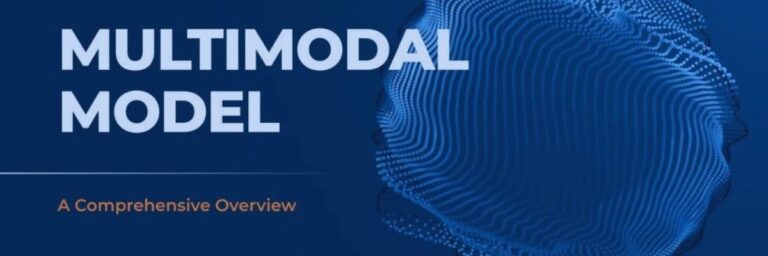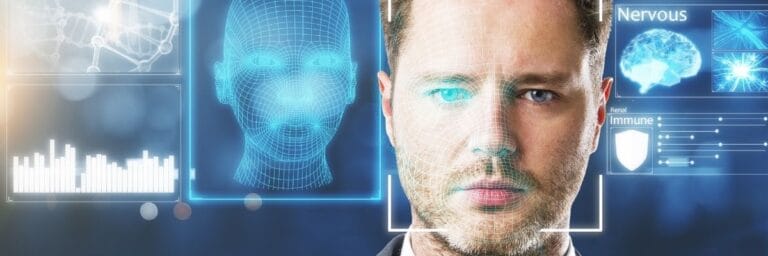Insilico Medicine leveraged AI to identify a novel drug target for fibrosis and generate a promising candidate molecule, they accomplished it in just a few months what traditionally took years – cutting both time and costs dramatically. This breakthrough showcases why AI in drug discovery has become a critical aspect of modern pharmaceutical research.
The global AI in drug discovery market, valued at $1.5 billion in 2023 and is expected to expand at a CAGR of 29.7% from 2024 to 2030, according to Grand View Research, represents a fundamental shift in how we develop new medications.
Through advanced algorithms and machine learning, pharmaceutical companies are now able to analyze billions of molecular combinations, predict drug behavior, and identify potential candidates with unprecedented speed and accuracy. This transformation isn’t just about efficiency – it’s about bringing life-saving medications to patients faster while significantly reducing the cost of developing a single new drug.
Transform Your Business with AI-Powered Solutions!
Partner with Kanerika for Expert AI implementation Services
What Are the Bottlenecks in Traditional Drug Discovery Processes?
1. High Failure Rates
According to Nature Reviews Drug Discovery, approximately 90% of drugs entering clinical trials fail to reach FDA approval. The success rate is particularly low for certain areas like Alzheimer’s disease, where 99.6% of trials failed between 2002 and 2012.
2. Time-Intensive Process
The FDA reports that the average time from drug discovery to market approval takes 12 years. According to PhRMA (Pharmaceutical Research and Manufacturers of America), the preclinical phase alone typically requires 6.5 years of research. Just the initial target identification and validation phase can take 2-3 years, with multiple iterative testing cycles required at each stage.
3. Astronomical Costs
According to the Tufts Center for the Study of Drug Development, bringing a single drug to market costs approximately $2.6 billion. Failed candidates represent sunk costs that must be absorbed into the development costs of successful drugs.
4. Limited Testing Capacity
Physical lab testing constraints mean only a small fraction of potential drug compounds can be screened. Traditional high-throughput screening can test around 10,000 compounds per day – a tiny fraction of possible molecular combinations.
5. Data Integration Challenges
Scientists struggle to effectively integrate and analyze vast amounts of fragmented data from various sources – genomics, proteomics, clinical trials, and scientific literature – leading to missed insights and connections.
6. Target Selection Uncertainty
Identifying the right biological targets for drug intervention remains largely based on educated guesses. Many promising targets fail in later stages due to unforeseen complications or side effects.
Key Applications of AI in Drug Discovery
1. Drug Target Identification
AI algorithms analyze complex biological data to identify and validate potential drug targets, dramatically reducing the time needed for initial drug discovery phases. This process combines genetic information, protein structures, and disease pathways to find promising intervention points.
Identifying Biological Targets for New Drugs
- Integration of genomic data, protein structures, and molecular pathways
- Analysis of protein-protein interactions to identify druggable targets
- Prediction of target protein behavior and structural changes
- Validation of target relevance through machine learning models
AI’s role in understanding disease mechanisms
- Mapping complex disease pathways using network analysis
- Identification of key molecular drivers in disease progression
- Analysis of patient data to understand disease subtypes
- Prediction of disease progression patterns and biomarkers
2. Compound Screening and Optimization
AI enables virtual screening of millions of compounds in a fraction of the time required for traditional methods. Machine learning models predict which compounds are most likely to be effective while minimizing potential side effects.
Virtual Screening of Chemical Libraries:
- Rapid screening of vast chemical databases for potential drug candidates
- Generation of novel molecular structures using AI models
- Analysis of structure-activity relationships
- Prediction of binding affinity to target proteins
Predicting Compound Efficacy and Toxicity
- Assessment of drug-likeness and chemical properties
- Prediction of potential side effects and toxicity risks
- Evaluation of metabolic stability and bioavailability
- Identification of optimal molecular properties for drug development
3. Predictive Modeling for Drug Behavior
AI models simulate how drugs will interact with the human body, providing crucial insights into drug behavior before clinical trials begin.
Pharmacokinetics and Pharmacodynamics Predictions
- Prediction of drug absorption and distribution patterns
- Analysis of drug metabolism and elimination rates
- Modeling of drug concentration levels over time
- Assessment of dosing requirements and schedules
Simulation of Drug Interactions
- Prediction of potential drug-drug interactions
- Analysis of drug effects on different biological pathways
- Evaluation of combination therapy effectiveness
- Identification of possible contraindications
4. Accelerating Clinical Trials
AI streamlines the clinical trial process by optimizing patient selection and monitoring, potentially reducing trial duration and costs while improving success rates.
Patient Recruitment and Stratification
- Identification of suitable trial participants based on multiple criteria
- Prediction of patient response to treatment
- Optimization of trial cohort composition
- Reduction of dropout rates through better matching
Monitoring and Data Analysis During Trials
- Real-time analysis of trial data and patient responses
- Early detection of safety signals and adverse events
- Prediction of trial outcomes based on interim data
- Automated analysis of clinical trial documentation
5. Personalized Medicine
AI transforms medical treatment by analyzing individual patient data to create customized therapeutic approaches, leading to more effective and safer treatments while reducing trial-and-error prescribing.
Tailoring Treatments Based on Individual Genetic Profiles
- Analysis of patient genetic data to identify drug metabolism variations
- Prediction of potential adverse reactions based on genetic markers
- Identification of optimal drug types and dosages for specific genetic profiles
- Integration of family history and genetic risk factors into treatment plans
AI’s role in Developing Personalized Therapeutic Strategies
- Real-time monitoring of patient response to adjust treatment plans
- Analysis of multiple data sources (genomic, clinical, lifestyle) to optimize therapy
- Prediction of treatment outcomes based on similar patient profiles
- Development of personalized drug combinations and dosing schedules
Generative AI in Supply Chain Management: A Complete Implementation Guide
Learn how generative AI optimizes supply chains with improved forecasting, streamlined processes, and enhanced efficiency for better results.
Advantages of Using AI for Drug Discovery
1. Innovation and Discovery of Novel Therapies
AI fosters innovation by enabling the discovery of new therapeutic targets and the development of novel treatments that were previously unattainable.
Facilitating Precision Medicine: AI supports the development of personalized therapies tailored to individual genetic profiles, enhancing treatment efficacy and patient outcomes.
Uncovering Hidden Targets: AI identifies novel biological targets that traditional methods might overlook, paving the way for innovative therapies.
Designing Unique Compounds: AI-driven design tools create unique chemical structures with desired properties, leading to the development of breakthrough drugs.
Exploring Complex Diseases: AI enables the study of complex and multifactorial diseases, facilitating the creation of targeted therapies for conditions that currently lack effective treatments.
2. Increased Efficiency and Speed
AI significantly accelerates the drug discovery process by automating and optimizing various stages, reducing the time required to bring new drugs to market.
Rapid Data Analysis: AI can process and analyze large volumes of biological and chemical data much faster than traditional methods, identifying potential drug candidates in a fraction of the time.
Automated Workflows: Automation of repetitive tasks, such as data entry and compound screening, streamlines the research process, allowing scientists to focus on more complex problems.
Faster Target Validation: AI algorithms quickly validate biological targets, ensuring that only the most promising ones are pursued, thereby shortening the overall development timeline.
Enhanced Collaboration: AI facilitates seamless collaboration between different research teams and departments by providing centralized data access and real-time insights.
Elevate Your Business Productivity with Advanced AI!
Partner with Kanerika for Expert AI implementation Services
3. Cost Reduction
Implementing AI in drug discovery helps in significantly lowering the costs associated with research and development by optimizing resource allocation and minimizing unnecessary expenditures.
Reduced R&D Expenses: By automating data analysis and screening processes, AI lowers the need for extensive laboratory experiments, cutting down on labor and material costs.
Minimized Failure Rates: AI’s predictive capabilities identify high-risk compounds early in the development process, reducing the financial losses associated with failed drug candidates.
Efficient Resource Allocation: AI helps prioritize projects with the highest potential for success, ensuring that resources are invested in the most promising areas.
Shortened Development Cycles: Faster drug development timelines lead to earlier market entry, increasing the return on investment and reducing overall costs.
4. Enhanced Accuracy and Predictive Power
AI enhances the precision of drug discovery by providing accurate predictions and reducing the likelihood of errors in the research process.
Precision in Target Identification: AI algorithms identify the most relevant biological targets with higher accuracy, increasing the chances of successful drug development.
Reliable Efficacy Predictions: Machine learning models predict the efficacy of compounds more accurately, ensuring that only the most effective candidates proceed to clinical trials.
Improved Toxicity Assessments: AI assesses the safety profiles of compounds with greater precision, identifying potential toxicities early and preventing adverse effects in later stages.
Data-Driven Decision Making: AI provides robust data analysis and insights, enabling researchers to make informed and evidence-based decisions throughout the drug development process.
5. Improved Success Rates
AI increases the likelihood of successful drug development by enhancing various stages of the discovery and testing processes.
Higher Candidate Quality: AI identifies and prioritizes high-quality drug candidates, improving the overall success rate of drug development projects.
Optimized Clinical Trials: AI optimizes the design and execution of clinical trials, ensuring that the right participants are selected and that trials are conducted efficiently.
Continuous Learning: AI systems learn from each project, continuously improving their algorithms and increasing the success rates of future drug discovery efforts.
Risk Mitigation: By predicting potential failures early, AI helps mitigate risks associated with drug development, leading to more reliable and successful outcomes.
AI in Drug Discovery is Great, But What About the Regulations?

FDA-approvals take a lot of time. AI-assisted drug discovery can help slash down the timeline and costs
The former MD of PayPal, Peter Thiel, once said, “If you’re trying to develop a new drug, that costs you a billion dollars to get through the FDA. If you want to start a software company, you can get started with maybe $100,000.”
He wasn’t joking. Approving drugs and the entire process around clinical trials after research is an expensive and time-consuming process.
So far, we have understood that AI carries the potential to vastly decrease the time taken to discover new drugs.
But where does the FDA stand on AI intervention in drug discovery?
In June 2023, the FDA released a discussion paper titled “Using Artificial Intelligence and Machine Learning in the Development of Drug and Biological Products.”
This document offers valuable definitions, distinguishing ML as a subset of AI. Moreover, highlighting that ML models are developed through data analysis without explicit programming.
The FDA acknowledges the increasing utilization of AI/ML in drug development. With a notable surge in AI/ML-based submissions, over 100 in 2021, covering drug discovery, clinical research, safety surveillance, and pharmaceutical manufacturing.
AI/ML is also being integrated into areas like Digital Health Technologies (DHTs) and Real-World Data (RWD) analytics. Here the FDA is actively engaged.
So far, the FDA is working on a flexible, risk-based regulatory framework that protects patient data and safety. While also allowing more AI-based innovation for companies.
This means, in a nutshell, the FDA has no significant concerns about the use of AI in drug discovery and development. This is a major win for the pharmaceutical companies looking to use AI in the US.
Responsible AI: Balancing Innovation and Ethics in the Digital Age
Explore the intersection of innovation and ethics with Responsible AI
Kanerika: Driving Speed and Efficiency in Business Operations with AI
Kanerika is a top-rated AI services provider dedicated to empowering businesses across diverse sectors such as healthcare, finance, retail, and logistics. By harnessing the power of artificial intelligence, we enhance operations, driving efficiency, growth, and innovation. Our team specializes in developing custom AI solutions tailored to resolve operational bottlenecks and elevate business processes.
As a certified Microsoft Data and AI Solutions partner, Kanerika leverages cutting-edge Microsoft technologies including Copilot, Power BI, Fabric, and Purview to help your business thrive. We ensure the successful deployment of these solutions, enabling your organization to gain a competitive advantage in today’s market. Whether you aim to optimize your supply chain, enhance customer experiences, or gain actionable insights, Kanerika is your trusted partner for AI-driven success. Let us transform your operations with innovative AI strategies, ensuring sustained growth and a leading edge in your industry.
Achieve 10x Business Growth with Custom AI Innovations!
Partner with Kanerika for Expert AI implementation Services
FAQs
How is AI used in drug discovery?
AI dramatically speeds up drug discovery by analyzing massive datasets to identify promising drug candidates much faster than traditional methods. It predicts drug effectiveness and potential side effects, minimizing costly and time-consuming lab experiments. Essentially, AI acts as a powerful predictive tool, optimizing the entire process from target identification to clinical trials. This accelerates the development of new medicines for various diseases.
How AI can benefit drug discovery?
AI dramatically accelerates drug discovery by analyzing vast datasets to identify promising drug candidates far faster than traditional methods. It predicts drug efficacy and safety profiles earlier in the development process, minimizing costly failures later on. Essentially, AI acts as a powerful predictive tool, optimizing the entire pipeline from target identification to clinical trials. This leads to faster development of new treatments and potentially lower costs.
What was the first AI drug discovery?
Pinpointing the *very first* AI drug discovery is tricky, as AI’s role has evolved gradually. Early successes involved AI assisting in tasks like target identification or molecule design, not fully autonomous discovery. Truly groundbreaking AI-led discoveries are still emerging, but represent a confluence of AI and human expertise rather than purely AI-driven breakthroughs. We’re seeing a continuous spectrum rather than a single, definitive “first”.
Which drug discovery company uses AI?
Many drug discovery companies leverage AI, but it’s not a simple “which one” answer. It’s become a nearly ubiquitous tool, assisting with everything from target identification to clinical trial optimization. Think of it less as a specific company and more as a widespread technology adoption across the industry. Leading pharmaceutical giants and smaller biotech firms alike are incorporating AI into their pipelines.
What is AI discovery?
AI discovery isn’t about finding lost treasures; it’s about using AI to unearth *new* knowledge and insights. Think of it as accelerating scientific breakthroughs by automating analysis of massive datasets that would be impossible for humans to process alone. This leads to faster innovation across various fields, from drug discovery to materials science. Essentially, it’s AI acting as a supercharged research assistant.
What are the applications of artificial intelligence in drug delivery?
AI dramatically accelerates drug discovery by analyzing vast datasets to predict effective drug candidates and personalize treatments. It optimizes drug delivery systems, designing smart nanoparticles for targeted release and minimizing side effects. Furthermore, AI powers predictive models to improve dosing strategies and enhance patient adherence to medication regimens. Ultimately, this translates to faster development, safer therapies, and better patient outcomes.
How is FDA using AI?
The FDA’s using AI to supercharge its work in several ways. It’s speeding up drug and device approvals by analyzing massive datasets to identify safety signals and predict efficacy faster than ever before. This includes automating tasks like image analysis for medical device testing and flagging potential risks in clinical trial data. Ultimately, this aims to get safe and effective treatments to patients more efficiently.
What are the future prospects of AI in drug discovery?
AI promises to revolutionize drug discovery by drastically speeding up the identification and development of new treatments. It can analyze vast datasets to predict drug efficacy and safety much faster than traditional methods, reducing costs and timelines significantly. However, challenges remain in validating AI’s predictions and ensuring ethical considerations are addressed. Ultimately, AI’s integration will likely lead to more effective and affordable medicines.
How is AI used in e discovery?
AI dramatically speeds up eDiscovery by automatically sorting through massive datasets. It identifies relevant documents far quicker than humans, using techniques like natural language processing to understand context and meaning. This reduces costs and allows lawyers to focus on strategic analysis rather than manual document review. Ultimately, AI enhances accuracy and efficiency in the entire eDiscovery process.
How is AI applied in medicine?
AI assists doctors in many ways, from analyzing medical images (like X-rays) to predict diseases earlier and more accurately than ever before. It also helps personalize treatments by analyzing patient data to identify optimal therapies. Essentially, AI acts as a powerful tool to enhance diagnostic capabilities and improve treatment outcomes, making healthcare more efficient and effective.
Will AI boost drug development in 2025?
Yes, AI is poised to significantly accelerate drug development in 2025. We’ll see AI enhancing target identification, streamlining clinical trials through better patient selection, and boosting the efficiency of drug design itself. This will likely lead to faster development timelines and potentially lower costs for new medicines. However, challenges around data quality and regulatory approval remain.
What is the role of AI in drug repurposing?
AI dramatically speeds up drug repurposing by analyzing massive datasets of existing drugs and diseases. It identifies potential new uses for approved medications, significantly reducing the time and cost of developing new treatments. This is done by uncovering hidden relationships between molecules and their effects that humans might miss. Ultimately, AI accelerates the path to patients receiving effective therapies faster.
How machine learning helps in drug discovery?
Machine learning drastically speeds up drug discovery by analyzing vast datasets of molecules and their properties to predict which ones are likely to be effective drugs. It identifies promising candidates much faster than traditional methods, reducing time and cost. This includes predicting efficacy, toxicity, and even how a drug might interact with a patient’s unique genetic makeup. Essentially, ML acts as a powerful filter and guide, streamlining the entire drug development pipeline.
What was the first drug discovered by AI?
While there isn’t a single “first” AI-discovered drug in the strictest sense (AI assists, it doesn’t independently discover), early examples highlighted AI’s potential. These focused on identifying promising drug candidates from vast datasets, speeding up the traditionally lengthy process of discovery. The distinction is crucial: AI accelerates and refines, but human scientists ultimately validate and develop the drug.









